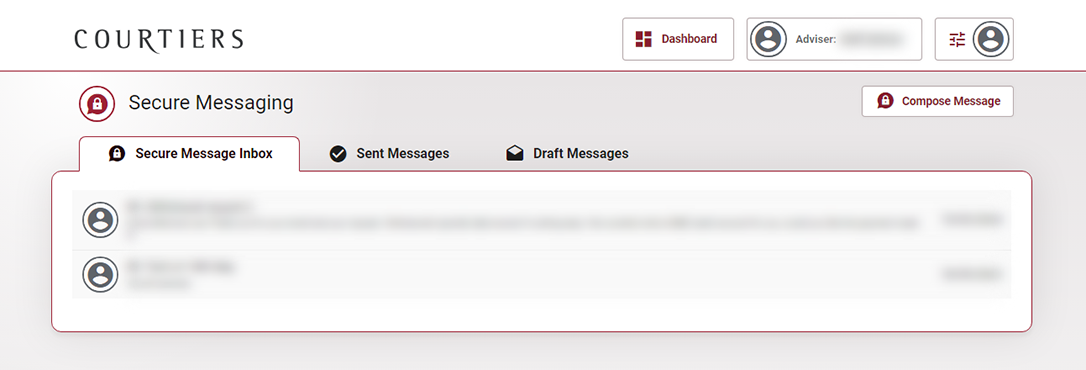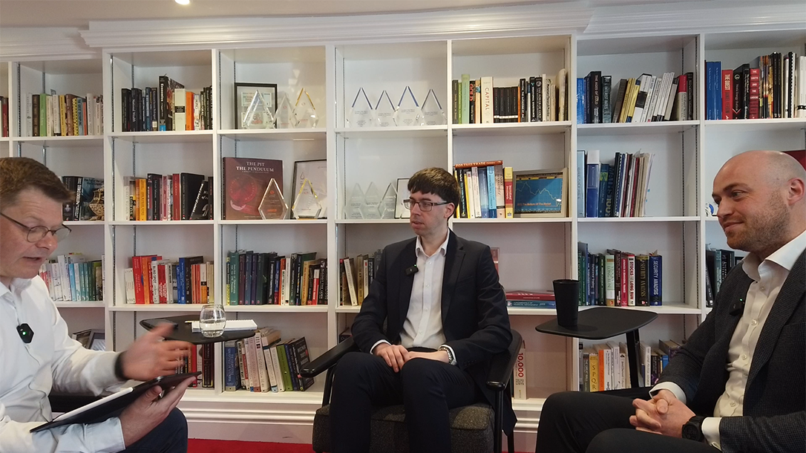Two regulated financial firms have reported that scammers have created WhatsApp groups, appearing to be set up by those firms. These scammers have invited clients to trade on various countries’ stock exchanges and provided tips on cryptocurrency trading. These groups have advertised on Facebook and LinkedIn, sending links to potential investors.
We wrote before about how to protect yourself online including a link to the Take Five to Stop Fraud website, and our stance and recommendations have not changed.
Courtiers do not offer these types of services, but more importantly, we do not use WhatsApp to contact our clients with advice or invitations to invest. While it is important for you to stay aware and vigilant about communications, if we contact you, we will do so in the following ways:

Telephone:
Your Financial Adviser will call you to discuss your wealth, arrange a meeting with you or simply to catch up with what’s happening in your life. Similarly, our support teams may call if they need to clarify any information you may have with us. We verify we are talking to you by asking you a few questions about you and your information at the beginning of the call.

Personal Finance Portal (PFP) Secure Messaging:
Your Financial Adviser may send you secure messages through your PFP, especially regarding financial or other sensitive information you share with us. These messages are more secure than email, so we are more likely to contact you this way when digitally writing to you.

In person:
Your Financial Adviser will spend time with you, talking in person. From one-to-one (or couple) meetings to Client Seminars, we like to see you face-to-face.

Email:
You may get occasional non-sensitive emails from your Financial Adviser or if you’re subscribed to receive commentary via email, you will of course receive these regularly via email. There are many ways to ensure you’re confident with email:
The savvy among you will have noticed the look of our email commentary has changed recently. This is to improve the level of valuable information we provide, and how we provide it.
It always pays to be vigilant, so it’s a good idea to check email authenticity, no matter who it comes from. Especially around the following:
• Check who the email came from. Does the email address look right? Scammers often pretend to be someone in authority to trick you.
• Check the quality of the email content (any typos, for example).
• Be wary if the message sounds or looks different to what you expect, especially if the message is trying to make you panic or hopeful (if it sounds too good to be true, it usually is!).
• Any suggestion of a limited-time offer or request for bank details or other sensitive information.

Printed letters or statements:
While we are moving more and more to digital communications, we may still send you letters or statements to your address. Please always keep these safe and if you would ever like a digital copy uploading to your PFP, or prefer digital delivery, please let your adviser know

Social Media – Facebook, LinkedIn, YouTube and X/Twitter:
We may post on Facebook, LinkedIn or X/Twitter, but we are unlikely to send you direct messages on social media. If you comment on our posts, we may ask you to contact us via direct messaging if we need further information. This will always be in response to you messaging us.
We don’t tend to share our commentary on Instagram, so any messaging from there should be treated with caution.
What to do if you’re unsure:
If you receive any contact supposedly from us, but you are not sure, the best thing to do is:
- Do not click any links in the message.
- Never hit reply or use links or contact details in the message to contact us with queries about the authenticity of the message.
- Instead, contact us via a different means – for example send a secure message in your PFP, or visit our website and use the Contact Us form to alert us to the suspicious communication. We can then guide you on any further steps.
We will respond to you to confirm if a message is from us. If it’s not, we’ll appreciate you bringing it to our attention and work with you and the authorities to report the matter and resolve any ongoing concerns.
Set standards:
Courtiers align to the National Cyber Security Centre (NCSC) guidelines, which you can use for general government guidance. Here, they give you a definitive checklist on things to check over across email, texts and calls. Plus, they have advice on what to do if you find yourself needing to report an incident.
As we said before, it’s worth testing your knowledge on the Take Five to Stop Fraud website when you’ve got a moment, giving you the tools you need to stay aware of scammers.
Remember, if you’re in doubt – don’t. Contact us if you ever have concerns and together we can establish the authenticity of any message.













